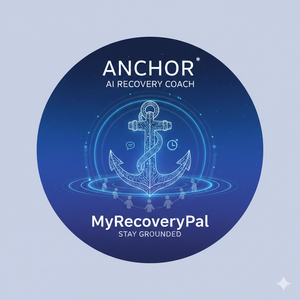
Let’s be honest — Romans 7:15–20 reads like someone trying to explain the unexplainable. Paul ties himself in knots saying “I do what I don’t want to do, and I don’t do what I want to do, but it’s not really me doing it.” If you’re scratching your head, you’re not alone. This passage has puzzled readers for centuries.
But for those of us in addiction recovery, Paul’s words hit differently. They sound eerily familiar, like he’s describing every morning-after promise we’ve ever made.
The Internal War Every Addict Knows
“I do not understand what I do. For what I want to do I do not do, but what I hate I do.”
Sound familiar? This is the 6 AM version of ourselves, full of remorse and determination, swearing “never again.” We mean it with every fiber of our being. The guilt and shame from last night’s choices fuel an iron-clad resolution. Today will be different. Today we’ll finally get it right.
But then afternoon rolls around — sometimes even sooner — and there we are again. Despite knowing exactly what we shouldn’t do, despite understanding the consequences, despite desperately wanting to choose differently, we find ourselves reaching for that drink, that pill, that needle. It’s maddening.
The Powerlessness Paul Describes
What Paul captures in this scripture is the essence of powerlessness that defines addiction. When he says, “it is no longer I myself who do it, but it is sin living in me,” he’s describing that horrifying moment when we watch ourselves make choices that contradict everything we claim to value.
This isn’t about making excuses or avoiding responsibility. It’s about acknowledging a truth that those in recovery rooms know well: willpower alone isn’t enough. The internal argument between right and wrong becomes a constant, exhausting battle. We know what not to do. We can list every reason why we shouldn’t. We can see the wreckage our choices create. And still, we do it anyway.
The Truth About Rock Bottom
Here’s what Paul understood that many well-meaning loved ones don’t: you can’t want sobriety for someone else. An addict can’t get clean for their spouse, their parents, their children, or their job — not in any lasting way. The desire has to come from within, and even then, desire alone isn’t enough.
This is why the concept of “rock bottom” in addiction recovery is so personal and so crucial. Rock bottom isn’t just about losing things; it’s about reaching that point where the internal civil war Paul describes becomes unbearable. It’s when the gap between who we want to be and who our addiction makes us becomes too painful to endure.
Finding Freedom Through Surrender
The beauty of Paul’s passage is that he doesn’t leave us in despair. He’s setting up a larger truth about human nature and the need for something beyond ourselves. In recovery programs, we call this a Higher Power. In treatment centers, we call it community support. In therapy, we might call it accountability and tools for change.
The point is this: Paul knew that understanding the problem isn’t the same as solving it. Wanting to change isn’t the same as being able to change. This is why recovery requires more than good intentions. It requires surrender, support, and often, a complete restructuring of how we live.
The Daily Battle Becomes Daily Practice
Seven years into my sobriety journey (March 4, 2018, if anyone’s counting), I still relate to Paul’s words, just differently now. The internal struggle hasn’t disappeared; it’s transformed. Now, instead of fighting against addiction alone, I have tools, support, and daily practices that help me choose the good I want to do.
For those still caught in Paul’s paradox — doing what you hate while unable to do what you want — know that you’re not crazy, weak, or uniquely broken. You’re experiencing something Paul documented two thousand years ago, something millions in recovery understand intimately.
The path forward isn’t about trying harder or wanting it more. It’s about admitting, like Paul did, that we need help beyond ourselves. It’s about finding community with others who understand this internal war. It’s about developing daily practices that support the person we want to be rather than feeding the addiction that controls us.
If you’re interested in exploring what daily recovery practices look like, I’ve documented my own journey in a recovery journal available HERE. It’s not about having all the answers — it’s about showing up daily for the person you’re becoming.
Moving Forward
Whether you’re in recovery, supporting someone who is, or dealing with your own struggles around mental health or other challenges, Paul’s ancient words offer both validation and hope. Yes, the internal battle is real. Yes, it’s confusing and frustrating. But no, you’re not alone in it.
The normalize sobriety movement isn’t about pretending recovery is easy. It’s about acknowledging these universal struggles while celebrating the courage it takes to face them, one day at a time.


Comments (0)
Login to leave a comment.
No comments yet. Be the first to share your thoughts!